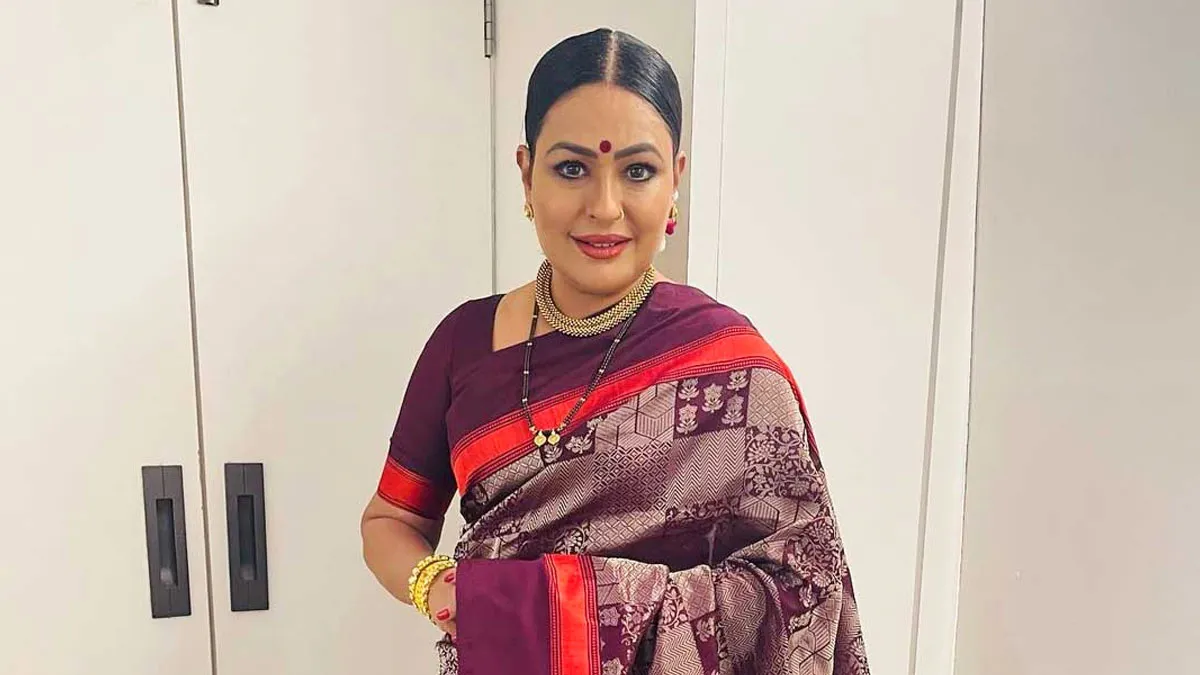
Actor Ashwini Kalsekar, widely known for her remarkable roles in Indian cinema and television, recently shed light on a deeply personal struggle—her journey with infertility. In an interview with Hauterrfly, she candidly discussed how her kidney condition affected her ability to conceive and carry a pregnancy to term. Her openness about this challenging experience highlights the often-overlooked connection between kidney health and fertility. For many women facing similar health conditions, Ashwini's story resonates deeply, shedding light on the difficult choices they must make and the risks associated with pregnancy when kidney health is compromised.
Table of Content:-
Ashwini's Struggle: Infertility, Kidney Condition, and Tough Choices
During the interview, Ashwini revealed that she and her husband, actor Murali Sharma, had considered starting a family. However, a kidney condition made the process incredibly complicated. Ashwini explained, “We did try, but at one point, the doctor told me that my kidney would not be able to handle the strain. It would either harm me or the baby.” This revelation underscores the severity of her condition and the high-stakes nature of the decisions she faced.
At the time, options like surrogacy were either not widely available or financially out of reach. The couple, still in the early stages of their careers, lacked the resources to explore alternative methods of having children. Ashwini's experience speaks to the broader challenges faced by women dealing with infertility due to medical conditions and the societal pressures surrounding motherhood.
View this post on Instagram
Why Kidney Conditions Complicate Pregnancy
Kidneys play a vital role in maintaining overall health by managing fluid levels, eliminating waste, and regulating blood pressure. During pregnancy, these functions are pushed to their limits as the body works to support both the mother and the developing fetus. For women with existing kidney issues, this additional strain can create a range of complications that can endanger both lives.
Pregnancy naturally increases the workload on the kidneys. They must process higher amounts of blood and manage waste products for both the mother and the baby. This added demand can be particularly dangerous for someone with chronic kidney disease (CKD) or other kidney impairments.
Also Read: Munawar Faruqui Reveals His Son’s Kawasaki Disease Diagnosis, Says " I needed Rs 75,000 but..."
One of the most significant risks associated with kidney conditions is hypertension, or high blood pressure. Uncontrolled hypertension during pregnancy can lead to preeclampsia, a serious condition characterized by high blood pressure, swelling, and potential organ damage. Left untreated, preeclampsia can escalate to eclampsia, which causes seizures and can be fatal for both the mother and child.
Complications Arising from Kidney Issues in Pregnancy
For women like Ashwini, the decision to avoid pregnancy is often based on the significant risks associated with kidney dysfunction. As per Dr. N Sarada Vani, Senior Consultant Obstetrics & Gynaecology, Minimal Access Surgeon (Laparoscopy), High-Risk Pregnancy Specialist, Yashoda Hospitals, here are some of the primary complications that can arise when pregnancy and kidney conditions intersect:

Preeclampsia and Eclampsia
Kidney issues significantly increase the likelihood of preeclampsia, which, if unmanaged, can lead to eclampsia. These conditions can result in seizures, liver or kidney failure, and the need for premature delivery to save the mother’s life.
Acute Kidney Injury (AKI)
Pregnancy can trigger acute kidney injury, a sudden decline in kidney function, which can have severe consequences. AKI can progress rapidly, requiring immediate medical intervention and potentially leading to long-term dialysis.
Also Read: Preity Zinta Beats Jet Lag and Stiffness with Hot Pilates: What Is Hot Pilates?
Proteinuria
Excess protein in the urine, known as proteinuria, is a sign of deteriorating kidney function. During pregnancy, this condition can worsen and lead to further complications, including damage to the placenta and impaired fetal growth.
Impaired Fetal Development
A mother’s compromised kidney function can reduce blood flow to the placenta, leading to intrauterine growth restriction (IUGR). Babies affected by IUGR are often born smaller and may experience developmental challenges. In severe cases, kidney issues may result in preterm labor or stillbirth.
Balancing Health and Parenthood
Ashwini Kalsekar's journey is a reminder of the difficult balancing act that many women face when their health conditions conflict with their desire to have children. While medical advancements like surrogacy, in-vitro fertilization (IVF), and kidney transplants have given hope to many, these options are not always accessible due to financial or logistical constraints.
Her story also highlights the importance of raising awareness about how underlying health conditions, particularly kidney diseases, can impact fertility. Early diagnosis, regular health check-ups, and consulting specialists can help women make informed decisions about their reproductive health.
Bottomline
By sharing her deeply personal struggle, Ashwini Kalsekar has opened the door for more conversations around infertility, kidney health, and the challenges many women face in silence. Her bravery serves as an inspiration to others, reminding them that prioritizing health is sometimes the most courageous choice. For women dealing with kidney conditions, understanding the risks associated with pregnancy is crucial in making choices that protect both their lives and their future.
Also watch this video
How we keep this article up to date:
We work with experts and keep a close eye on the latest in health and wellness. Whenever there is a new research or helpful information, we update our articles with accurate and useful advice.
Current Version